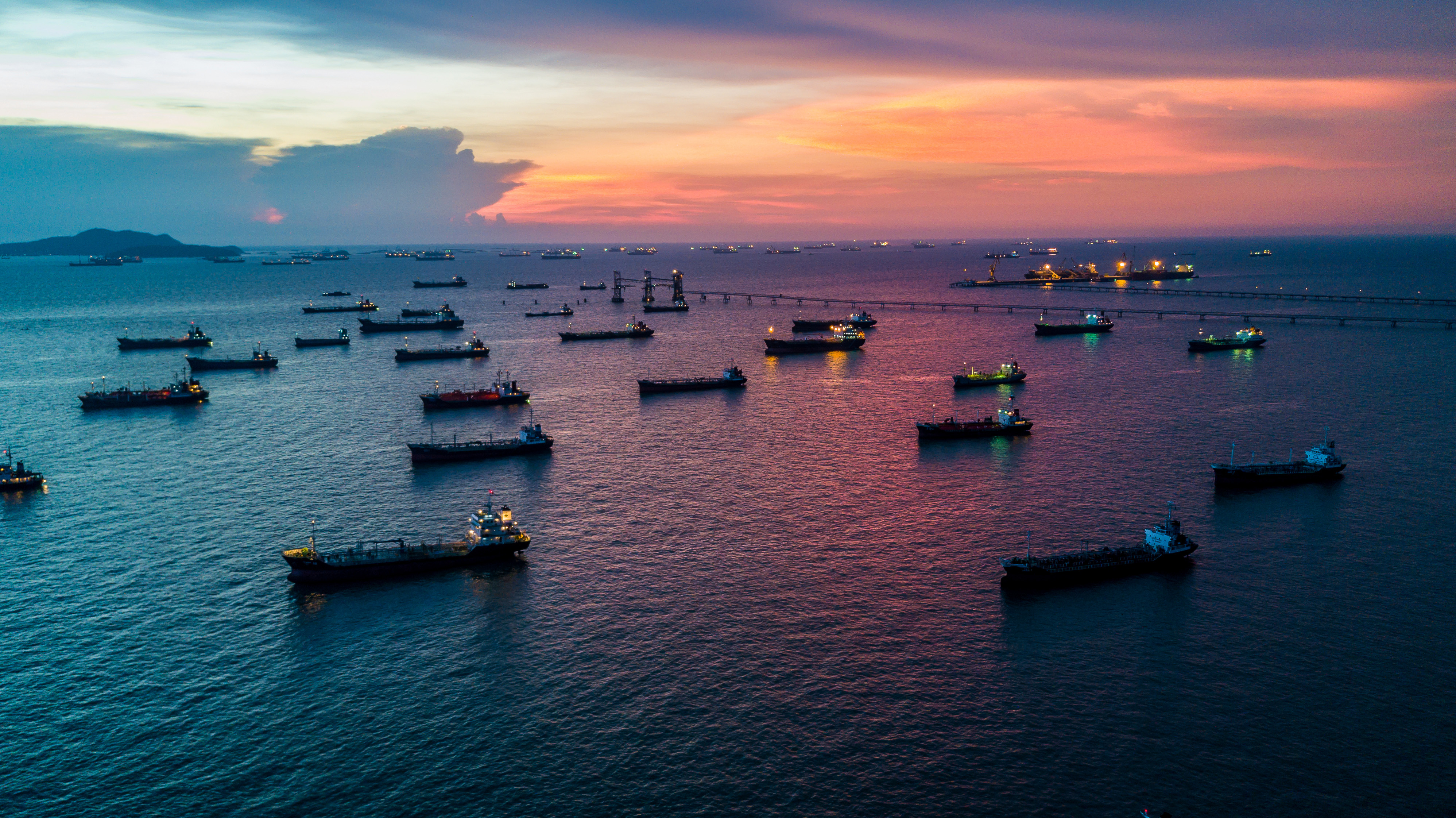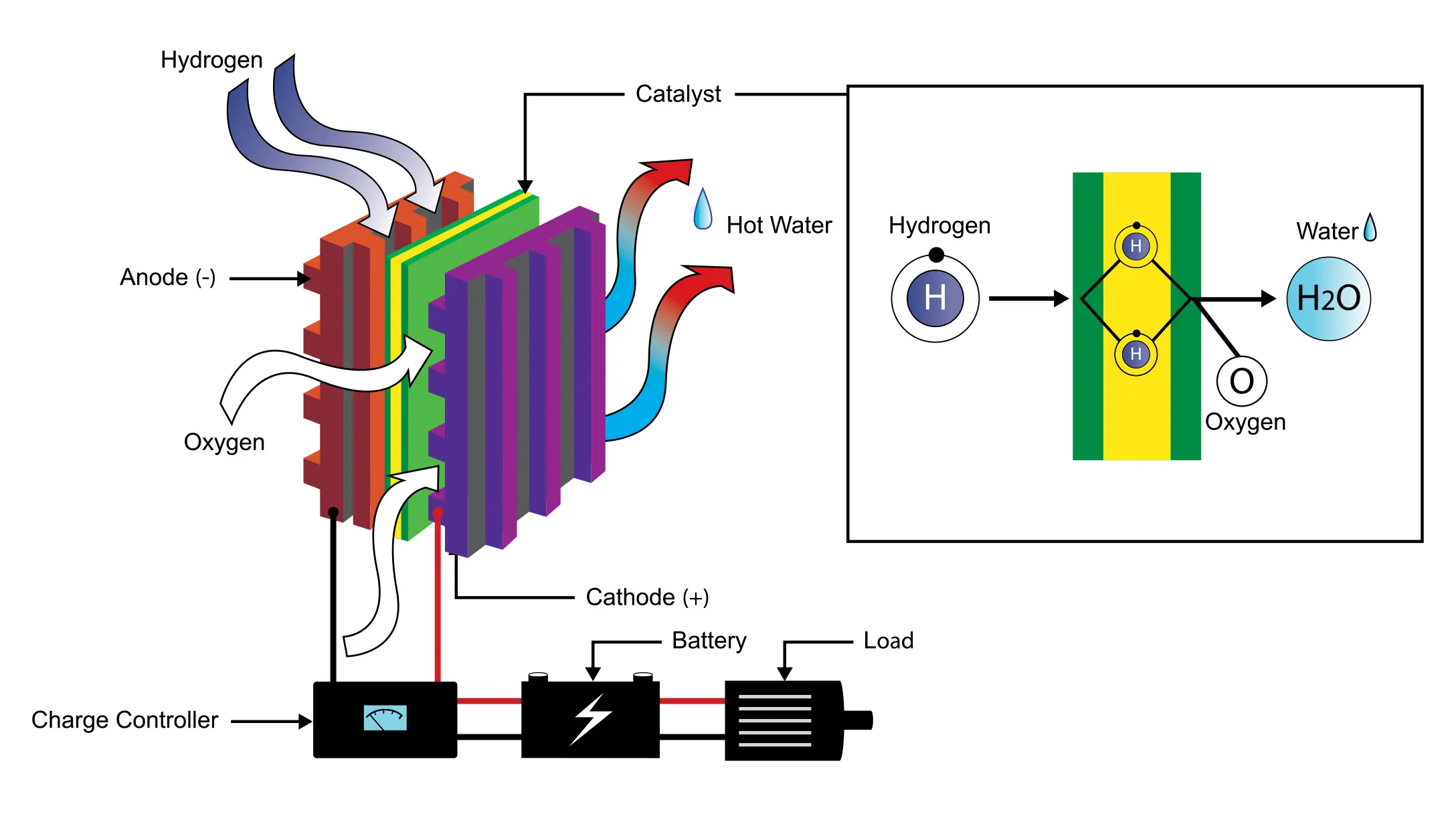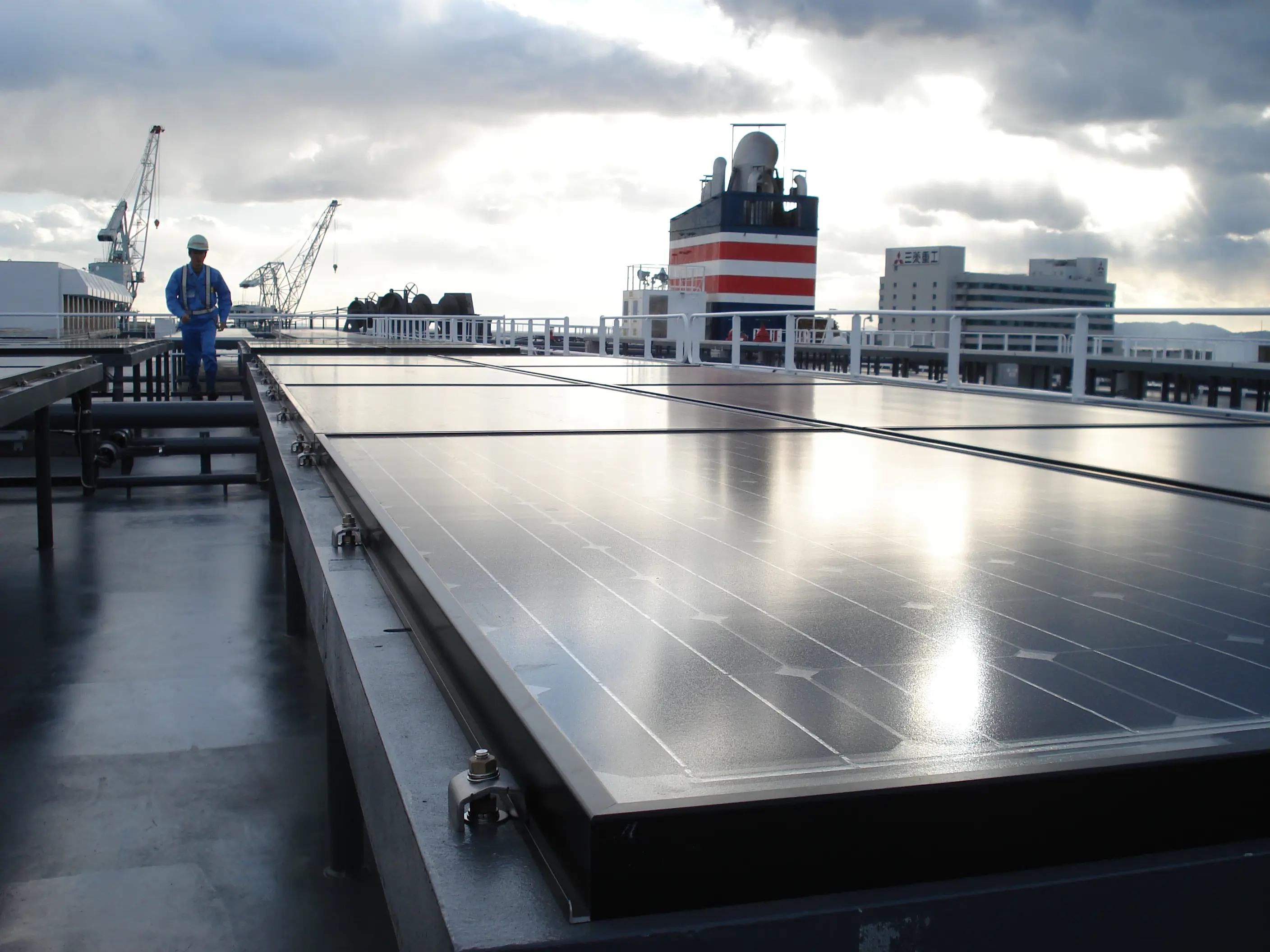Are hybrid powered ships robust enough to cope with increasing demands at sea?
Very few doubt the importance of hybrid electric power technologies and the role this energy system will play across the international maritime community, particularly in the years leading up to 2030 and the importance of decarbonising the industry.
Gareth Burton, ABS Vice President, Technology explains that hybrid electric power systems is an area which is generating more interest across all forms of transport, and with the recently updated ABS industry guide on hybrid electric power systems, the business case is beginning to power up initiatives to test and validate this relatively new technology.
Sea-going vessels as well as offshore installations require electrical power for most things we often take for granted onshore. At sea, power systems need to cope with almost all elements of energy demand from communications and navigation systems, through to crew comfort and reliable propulsion systems that power a vessel from one destination to the next.
Costs of energy use is a key consideration for vessel operators but there are hopes that hybrid electric power systems will offer increased potential for financial savings as well as improved environmental footprint from less emissions.
The concept of hybrid electric power is very much advanced in the automotive industry and exploration of the technology’s value is being evaluated in aerospace. These energy technologies are increasingly brought together to assess their effectiveness as hybrid propulsion systems for use in cleaner and more efficient air, land and sea transport.
For the maritime sector, decarbonising marine transport is a critical yet complex process as new hybrid electric power systems are assessed for a number of considerations:
- increasing a vessel’s efficiency as well as vital space and weight reductions leaving extra space for crew accommodations, cargo and supplies;
- increasing vessel reliability, power distribution/take-off modes, and journey range;
- emissions and acoustic noise reduction above and below the water line;
- capacity of extending the technology to all vessel types and including ports and marinas
What are hybrid electric power system and how do they work?
Hybrid electric power systems can combine internal combustion engine-driven generators and/or shaft generators or motors driven by a main engine with an energy storage system (ESS) consisting of batteries and supercapacitors. They can also utilise other non-traditional sources of power such as fuel cell technologies to form the power generation and propulsion system of the vessel.
The architecture of a hybrid system can be designed specifically for the requirements of each individual vessel and each component can be optimised for maximum efficiency. The combination of two or more new technologies when conventional power generation is not installed onboard is categorized as a hybrid electric power system

For the maritime sector, decarbonising marine transport is a critical yet complex process
Operational flexibility in propulsion techniques
As a result of a greater number of energy components, hybrid electric power systems offers operational flexibility for vessel operators and owners.
Fuel and battery sources allow for more choice and possibilities on how to manage a typical vessel’s propulsion system and at various phases of a journey to help reduce energy consumption compared with traditional power units.
The perception of hybrid electric power systems implies that it is a system that would require an increase in the necessary front-end expenditure especially during a vessel’s design phase, and that a greater complexity in operation means increased fragility leading to more inspections and more cost. Not necessarily.
More and more, engine manufacturers are seeing a compelling argument for hybrid power beyond the cleanliness and efficiency gains; hybrid electric power systems allows for lower horsepower options and more compact engines to be utilized onboard, as well as providing OEMs and vessel owners with an array of options to optimize their fuel or power choice based on energy preference and fuel availability.
Modularity is also important for the most versatile solution and for the largest variety of applications. Hybrid power configurations allow ship designers and retrofit contractors to select from a range of modular drive systems including diesel, gas, hybrid, electric and hydrogen-based technologies. No one size fits all vessels which is why tailor-made systems can be applied across different vessel types that journey through different types of waters and for different purposes. From research vessels and icebreakers to ferries, cruise ships, cargo vessels and superyachts, the industry is focused on using clean power technologies that deliver safety while at sea, reduced operational costs, lower emissions and increased vessel value.
Popularity is key to hybrid power growth
Hybrid power sources can revolutionize energy consumption across the maritime industry and heavily reduce emissions, as well as fuel and maintenance costs. With the International Maritime Organization’s (IMO) greenhouse gas (GHG) strategy, adopted in 2018, setting ambitious targets to reduce total annual GHG emissions by at least 50 percent by 2050 compared to 2008, hybrid electric power systems could revolutionize how the sea-faring industry is powered. It seeks to reduce CO2 emissions per transport work, as an average across international shipping, by at least 40 percent by 2030, and a 70 percent reduction by 2050 compared to 2008.
Siemens Energy recently identified that 81% of the world's 91,000 ships are small or medium-sized, and with today's technology these vessels can be converted to electric or hybrid electric. A study on the electrification of the European ferry fleet conducted by Siemens Energy and the non-profit environmental organization Bellona shows that Europe can reduce CO2-emissions in key countries by nearly 50 percent. The report indicates this would save 800.000 tons of CO2 each year, thanks to already available technologies.
Energy technology continues to evolve as new cleaner power sources and clean energy capacities become accessible and available. As batteries and other solutions have evolved to allow for faster release of energy when needed, and have dropped in price in a relatively short period of time, they have become more realistic options in hybrid power solutions for marine applications. Hybrid electric power systems increase the value proposition at the procurement stage and throughout a vessel’s life. Zero-emission and zero-noise is the target for the shipping industry, and the roll out of hybrid electric technologies is already having a positive impact. These systems enable engines to be downsized and to use hybrid power systems for peak-load. Alternatively, the output from a ship’s diesel engine can be reduced, allowing lower fuel consumption.
Diesel-electric hybrid ferries are already transitioning to combine diesel power with electric battery power. More projects in different parts of the world are beginning to emerge with particular interest from across the cruise sector where often ships sail in to environmentally protected and highly regulated waters and where hybrid power systems provide an environmentally friendly power-based solution.

Sample hydrogen fuel cell
Saving on fuel and maintenance costs
While the pressure to reduce fuel consumption and emissions has increased, the operating profile of ships has become increasingly diverse. For example, offshore vessels perform numerous tasks such as transit and critical dynamic positioning operations, while naval ships perform traditional patrol operations in the open sea and are also deployed in littoral operations. These and other varied operational profiles have led to a growing variety of power and propulsion architectures. When applying hybrid electric power to marine vessels, the vessel specific operational profiles require detailed analysis to find the right combination of power and propulsion architecture that matches the operator need and use of the vessel.
Data is already identifying some substantial direct and in-direct cost savings. Hybrid electric power systems is a technology that will reduce fuel consumption substantially with the potential of allowing for periods of emission-free sailing.
In cruise journeys, vessels tend to sail long distances. Batteries allow vessel operators to manage the load fluctuations on the engine to help it run more smoothly. Likewise smaller cruise vessels sailing in water inland waterways and in close proximity to areas of populated urban living such as port towns and communities, can use hybrid electric power to navigate successfully and drive down local emission levels.
Charging ahead on design and solutions
With the increasing and impressive array of hybrid power technologies making inroads in to maritime and shipping sector, there is a nod to the automotive industry which has been seen as a catalyst for this type of technology.
Naval deployments of hybrid technologies are helping to de-risk the options for the wider maritime industry to meet extreme operating environments to test and re-test uptime, survivability and redundancy scenarios. Naval and military applications have succeeded in the way they have migrated their vessel power systems as a result of progressive capabilities in methods to increase electrical load demand with cost-efficient solutions that are affordable.
Different hybrid adoption levels are dependent on different vessel types and journeys plus port-side infrastructure. For example, plug-in vessels need a mooring or berth to recharge, much like an electric car at an automotive station. But the market is growing. According to the market research report ‘Marine Hybrid Propulsion Global Market Report 2021’ published by The Business Research Company, the global marine hybrid propulsion market is expected to grow $5.02 billion in 2025 at a CAGR of 12.8 percent.
While the ‘plug-in’ nature of sea-based transport systems is in the short-term very popular, the longer term possibilities will extend with improved electric solutions as battery technology itself further evolves with the use of smarter materials and cell life to increase single-charge operating journey times.
The designing of fuel-efficient marine hybrid electric systems HEPS and advanced lightweight materials for these systems represent upcoming trends in the market. An expanding product portfolio, coupled with the latest hybrid power technology trends are the factors to boost market growth.

Solar on vessels
Hybrids could soon become the power standard with guidance
In any new technology application, the decision to adopt clean energy sources using hybrid systems, centers on a coupling of benefits and value for the operator. Hybrid electric power systems are part of the growing clean energy system.
To support awareness, training, and knowledge-share across the maritime industry on hybrid electric power systems, ABS – a leading global provider of classification and technical advisory services to the marine and offshore industries – has developed and released its industry guidance as part of a market-leading series of maritime technical guidance.
The publication addressing Practical Considerations for Hybrid Electric Power Systems Onboard Vessels, explores the different forms of hybrid electric power systems and offers practical insight into their application on board. It explores renewable energy sources, energy storage systems, battery management approaches, the potential for modelling and simulation and the impact to port infrastructure, as well as the regulatory landscape.
ABS believe hybrid electric systems are a viable option to support the maritime industry in meeting its IMO GHG reduction targets. A wide variety of applications at sea with diverse operational profiles are creating multiple power and propulsion architectures. This latest insight from ABS is designed to support the international shipping industry in capitalising on the potential of hybrid electric power systems technologies with a focus on safety and sustainability.
For OEMs, vessel operators and fleet owners, the hybrid electric vessel is here to stay. The variations are increasing, and the benefits continue to mount as engine manufacturers investigate more sophisticated pathways and strategies to squeeze more energy out of cleaner power technologies.





